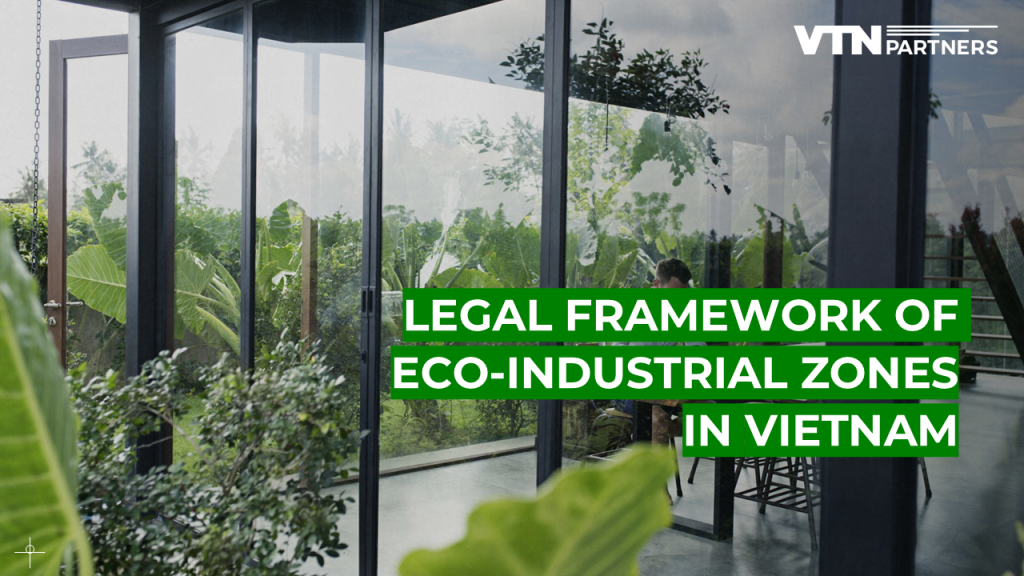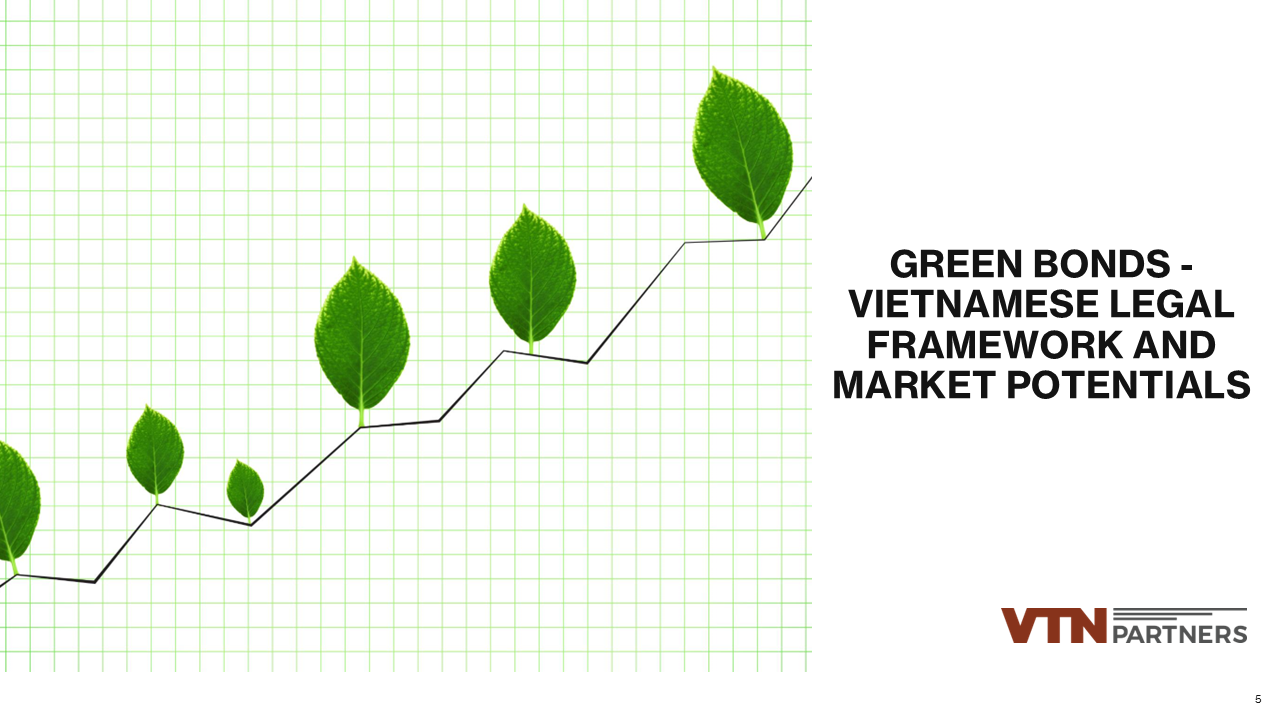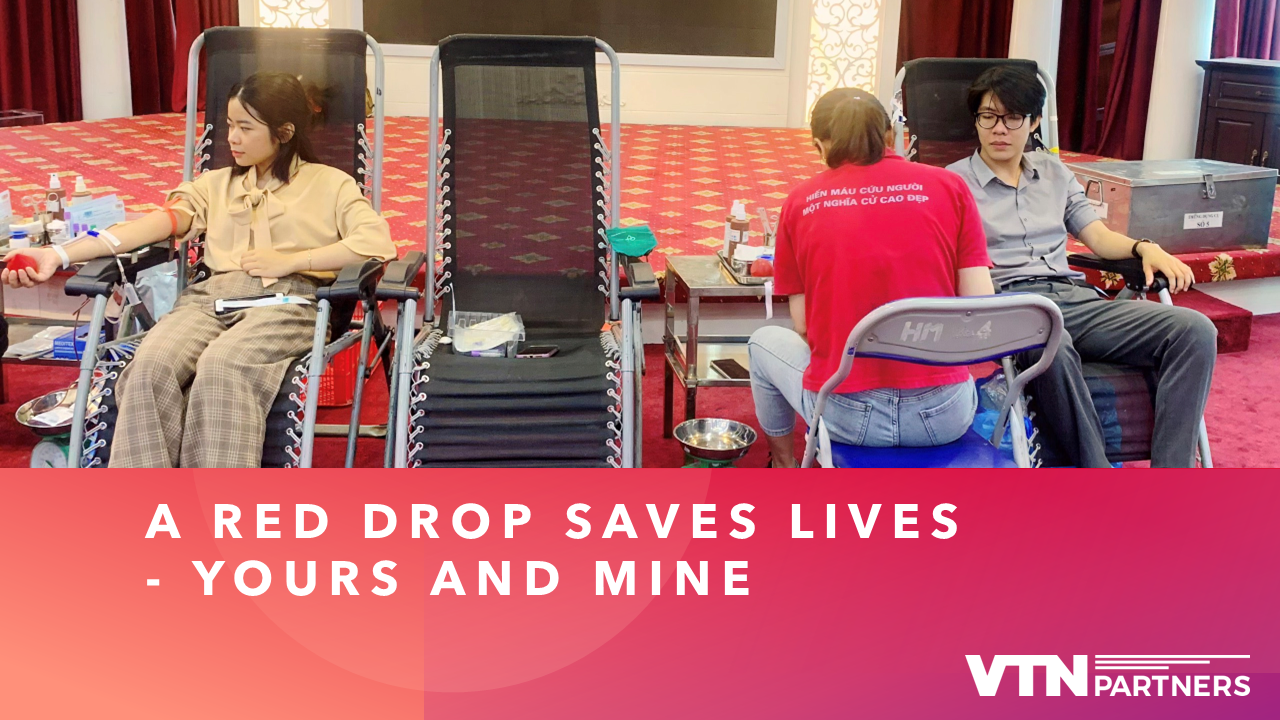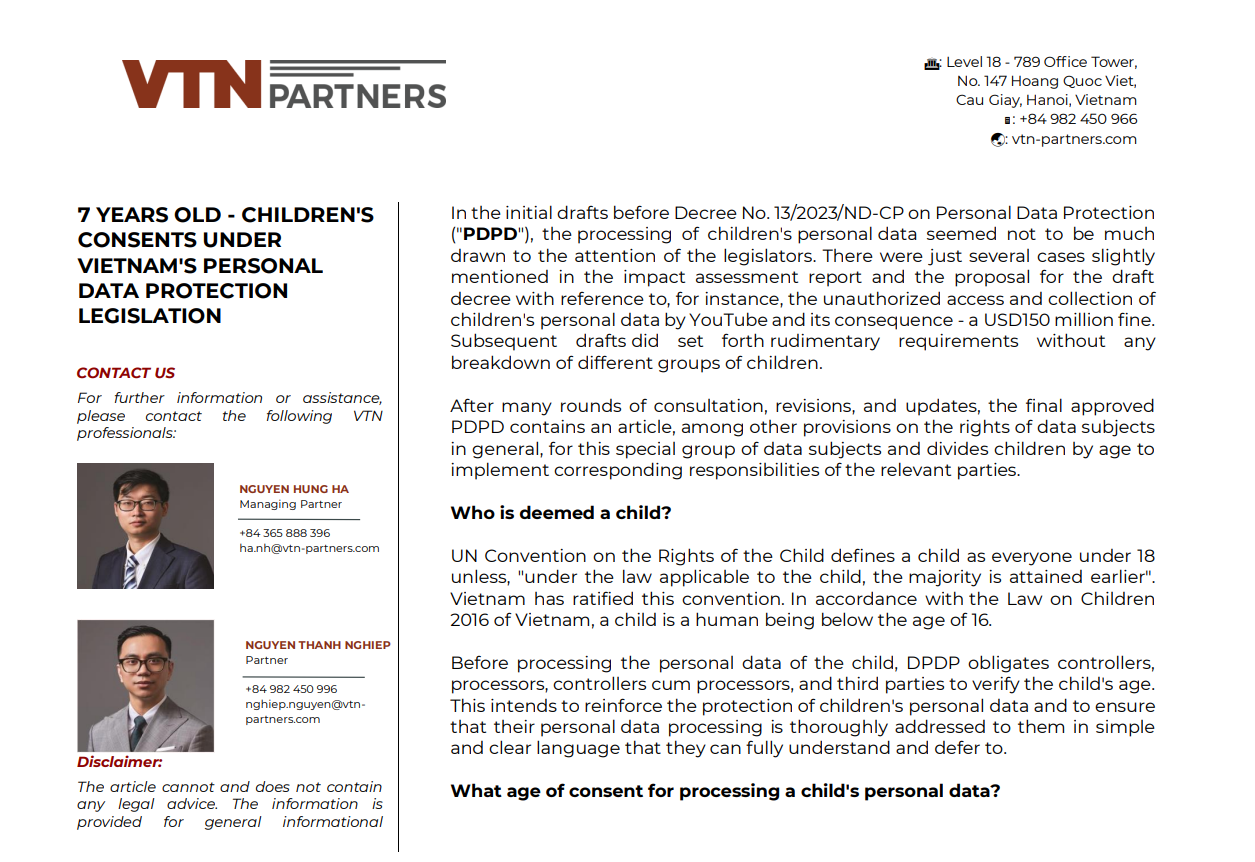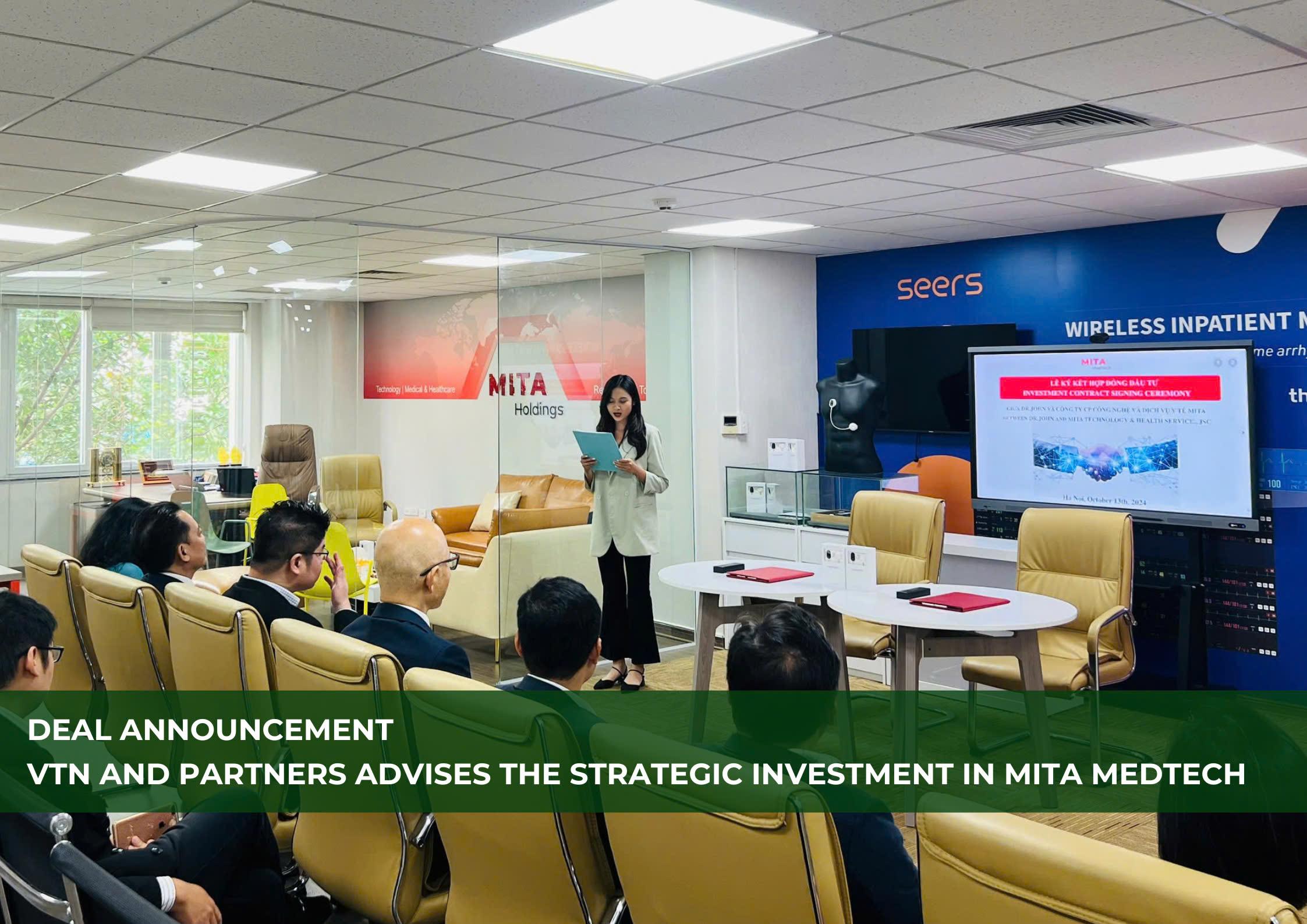In Vietnam, the establishment and operation of eco-industrial zones (EIZs) are governed by Decree No. 35/2022/ND-CP on the management of industrial zones and economic zones (“Decree 35”). An eco-industrial zone is defined as an industrial area where enterprises engage in cleaner production, efficient resource use, and industrial symbiosis to minimize environmental impact and optimize economic benefits.
Investors (developers) interested in developing EIZs in Vietnam must comply with a comprehensive set of criteria, documentation, and procedural requirements as stipulated by Vietnamese law. Additionally, businesses (zone occupants) operating within these zones are also subject to specific regulations. Below is an overview of these legal requirements, along with the incentives and benefits available to both developers and zone occupants in EIZs.
Legal Criteria for Eco-Industrial Zone Certification
- Developer Obligations:
- Legal Compliance: Developers must demonstrate full compliance with the laws on investment, enterprises, construction, land, environmental protection, and labor for at least three years prior to registering for EIZ certification.
- Service Provision: Developers are required to ensure the provision of essential services in the industrial zone, including electricity, water, fire prevention, wastewater treatment, and other relevant support services to facilitate industrial symbiosis.
- Resource Management: Developers must establish a cooperation mechanism for monitoring the use of raw materials, energy, chemicals, and waste among zone occupants. An annual report on resource efficiency, cleaner production, and emission monitoring must be submitted to the Management Board of Industrial Zones and Economic Zones.
- Transparency and Accountability: Developers must publish an annual report on environmental protection and social responsibility. This report should be made available to the Management Board and published on the websites of the developer and zone occupants within the EIZ.
- Zone Occupant Requirements:
- Legal Compliance: Zone occupants operating within the EIZ must comply with relevant laws on investment, enterprises, construction, land, environmental protection, and labor for at least three years prior to registering for certification.
- Industrial Symbiosis: Zone occupants must participate in at least one industrial symbiosis initiative, adhering to ISO standards for production and environmental management.
- Sustainability Initiatives: At least 20% of zone occupants within the zone must implement solutions that promote resource efficiency and cleaner production, leading to significant reductions in the consumption of raw materials, energy, and waste.
- Requirements for the Industrial Zone:
- Land Allocation: The zone must allocate at least 25% of its total land area for green spaces, traffic, public utilities, and social infrastructure, in accordance with the national technical regulations for construction planning.
- Employee Facilities: The zone must provide adequate housing and public service facilities for employees working within the EIZ.
Incentives and Benefits for Eco-Industrial Zones
The Vietnamese government offers a range of incentives and benefits to encourage the development and operation of eco-industrial zones. These incentives apply to both developers and zone occupants:
- Incentives for Developers:
- Tax Incentives: Developers may be eligible for corporate income tax (CIT) exemptions or reductions. This includes a preferential CIT rate and potential tax holidays for a specified period, depending on the location and the scale of the EIZ project.
- Import Duty Exemptions: Developers may benefit from import duty exemptions on equipment, machinery, and materials imported for the construction and operation of the EIZ, particularly if these imports serve production, technological innovation, or environmental protection purposes.
- Land Rent Reductions: Developers may receive exemptions or reductions on land rent for a certain period, depending on the location and importance of the EIZ project.
- Infrastructure Support: The government may provide financial support or subsidies for the development of infrastructure within the EIZ, including transportation networks, wastewater treatment facilities, and other essential infrastructure.
- Incentives for Zone Occupants:
- Corporate Income Tax (CIT) Incentives: Zone occupants within the EIZ may also qualify for CIT reductions or exemptions, depending on their operations’ nature and contributions to the eco-industrial symbiosis.
- Land Rent Reductions: Zone occupants that meet certain environmental performance criteria may benefit from reduced land rent within the EIZ.
- Environmental Subsidies: Zone occupants that implement cleaner production techniques or achieve significant resource use or emission reductions may be eligible for government subsidies or grants to offset the costs of adopting environmentally friendly technologies.
- Recognition and Awards: Zone occupants demonstrating exemplary environmental management and contributing significantly to the sustainability of the EIZ may receive governmental recognition, including awards and public acknowledgment.
Dossier Requirements for Eco-Industrial Zone Certification
To apply for EIZ certification, developers must submit a dossier to the Management Board of Industrial Zones and Economic Zones, upon its satisfaction of the conditions, the Management Board of Industrial Zones and Economic Zones will report to the People’s Provincial Committee for approval of the eco-industrial zone certifications. The dossier should include:
- A registration form for EIZ certification.
- A report detailing the performance and investment attraction results of the industrial zone.
- An assessment demonstrating the zone’s compliance with the criteria outlined in Article 37 of Decree 35, along with supporting documents.
- Any additional relevant documents.
Procedures for Eco-Industrial Zone Certification
Step 1: Dossier Preparation and Submission
- Developers must prepare and submit six copies of the dossier to the Management Board of Industrial Zones and Economic Zones.
Step 2: Dossier Consultation and Evaluation
- Within three working days of receiving a complete dossier, the Management Board will forward it to relevant ministries (Planning and Investment, Natural Resources and Environment, Science and Technology, Industry and Trade, and Construction) for consultation.
- The consulted ministries will have 15 days to provide their feedback on the dossier’s compliance with the criteria outlined in Article 37 of Decree 35.
- Within 40 days, the Management Board will evaluate the dossier and prepare a report on whether the zone meets the criteria for EIZ certification.
Step 3: Certification Results
- If the dossier meets the requirements, the Management Board will recommend the Provincial People’s Committee issue the EIZ certification.
- If the dossier does not meet the requirements, the Management Board will notify the developer in writing within three working days, providing reasons for the rejection.
